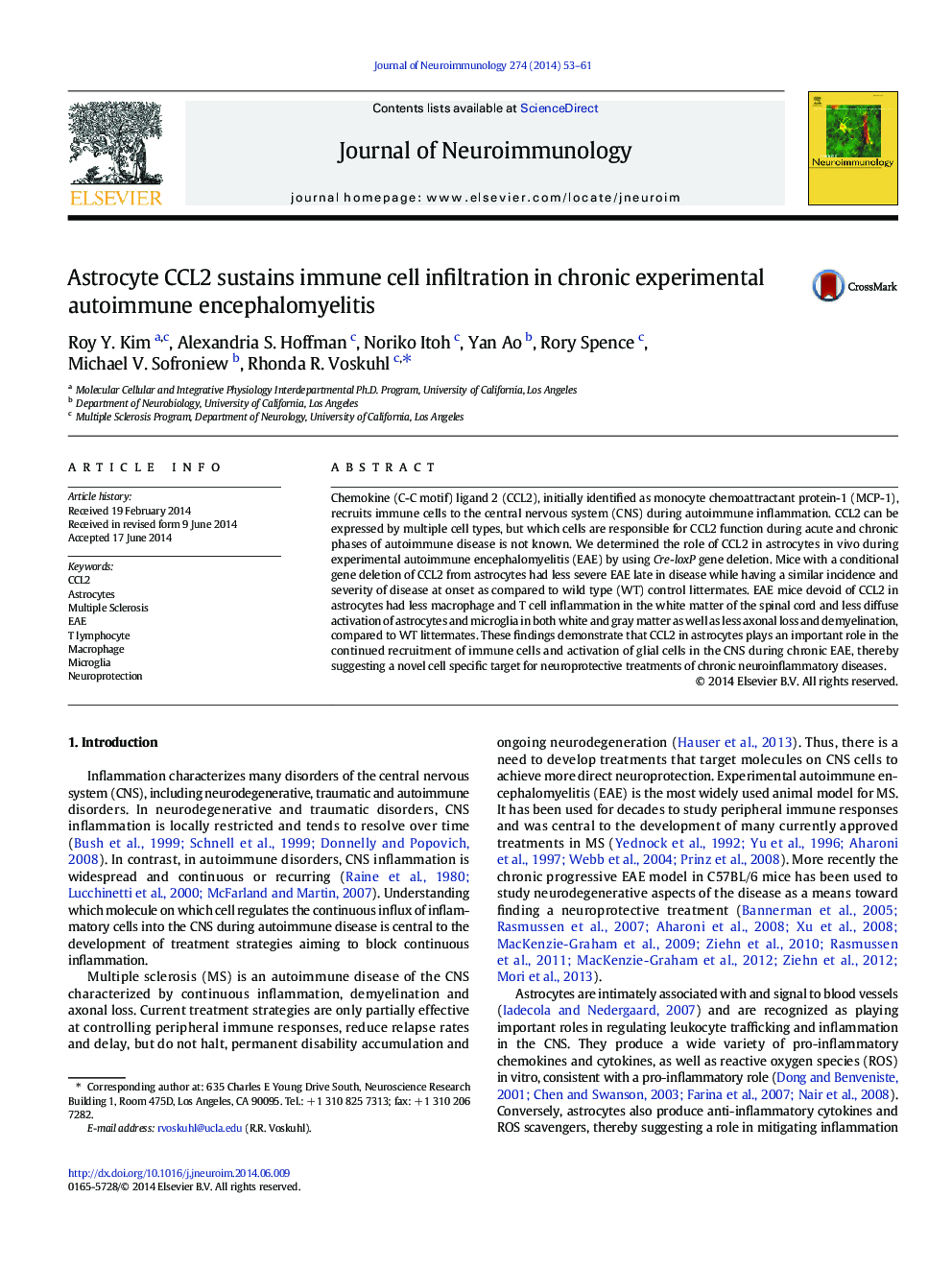| Article ID | Journal | Published Year | Pages | File Type |
|---|---|---|---|---|
| 6020528 | Journal of Neuroimmunology | 2014 | 9 Pages |
Abstract
Chemokine (C-C motif) ligand 2 (CCL2), initially identified as monocyte chemoattractant protein-1 (MCP-1), recruits immune cells to the central nervous system (CNS) during autoimmune inflammation. CCL2 can be expressed by multiple cell types, but which cells are responsible for CCL2 function during acute and chronic phases of autoimmune disease is not known. We determined the role of CCL2 in astrocytes in vivo during experimental autoimmune encephalomyelitis (EAE) by using Cre-loxP gene deletion. Mice with a conditional gene deletion of CCL2 from astrocytes had less severe EAE late in disease while having a similar incidence and severity of disease at onset as compared to wild type (WT) control littermates. EAE mice devoid of CCL2 in astrocytes had less macrophage and T cell inflammation in the white matter of the spinal cord and less diffuse activation of astrocytes and microglia in both white and gray matter as well as less axonal loss and demyelination, compared to WT littermates. These findings demonstrate that CCL2 in astrocytes plays an important role in the continued recruitment of immune cells and activation of glial cells in the CNS during chronic EAE, thereby suggesting a novel cell specific target for neuroprotective treatments of chronic neuroinflammatory diseases.
Related Topics
Life Sciences
Immunology and Microbiology
Immunology
Authors
Roy Y. Kim, Alexandria S. Hoffman, Noriko Itoh, Yan Ao, Rory Spence, Michael V. Sofroniew, Rhonda R. Voskuhl,
